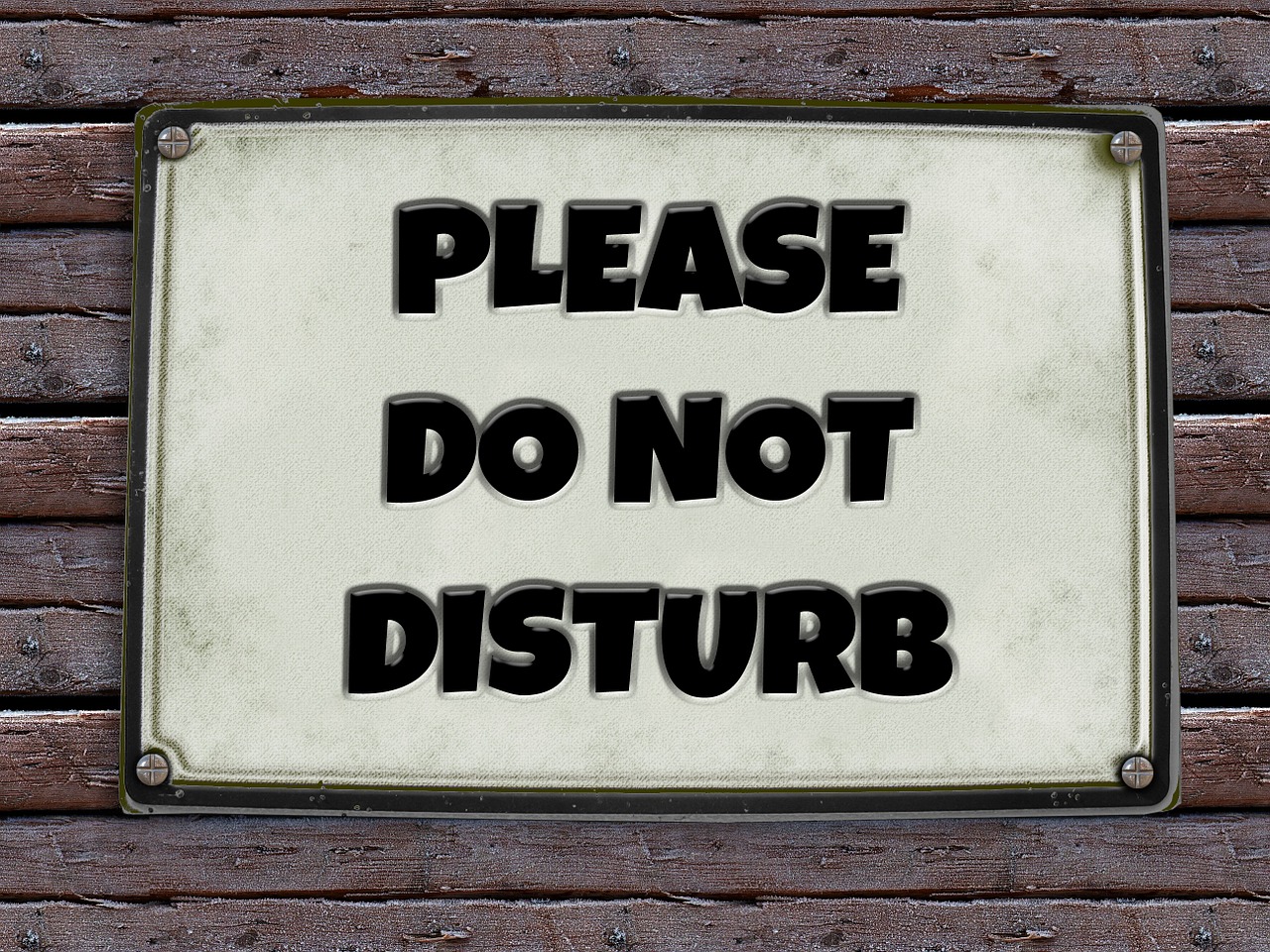The average person spends 90,000 hours at work over their lifetime.
Pretty scary when you put it like that – especially as, for most people, work is something to be endured rather than enjoyed. It’s much more common to hear a friend or family member complaining about work than to hear them talking about how much they love their job. I think a lot of our disgruntlement comes from the fact we “have” to work and most of us hate being forced to do things. We see work as an obligation and many of us dream of winning the lottery so we never have to work again and can finally be “free”.
Last year, I was lucky enough to experience the freedom of not working, when I took a year off to travel (sadly I didn’t win the lottery, I just spent all my hard-earned savings!) The strange thing is that, having “escaped” work, I found that I actually kind of missed it. Of course, I enjoyed the liberty of being able to do whatever I wanted and not having to answer to anyone. However, I did miss the routine and rhythm that work brings to my day, the sense of purpose it provides.
My stint of not working made me realise that I should stop seeing work as something I wished I didn’t have to do and instead embrace it as something I’d be lost without. Those 90,000 hours do not have to be a “necessary evil”, but can be an opportunity to develop skills, contribute to the greater good and forge meaningful relationships.
Here are a few ways to feel happy in your job and get the most out of your working life:
Build relationships
The strength of our relationships with other people is one of the most important factors in determining our happiness in life, and our work life is no exception. The best way to improve your happiness at work is to build relationships with your colleagues. Lots of research shows that people are happier and more productive at work if they get along well with their co-workers. In fact, many people will rank their colleagues above money when listing the parts of their job that are most important to them. Human beings all have a desire to belong and a strong team can provide us with feelings of acceptance, loyalty and affinity.
Depending on your position, you may not have any control over who you work with. Neither do you have any control over how other people behave. However, you can always control how you act and your behaviour towards your colleagues can have a hugely positive impact on your relationships. Many of us are guilty of getting to our computers in the morning and becoming absorbed in a flood of emails, barely looking up other than to grab some lunch. Not only is this a rather depressing way to live (!), but it doesn’t allow any time for building relationships. However busy you are, take some time to chat to the people around you, or the people you bump into in the kitchen, and find out about them on a personal level. We develop relationships by sharing information about ourselves, so make the effort to allow this to happen.
If you are in a positive of management, you have even more opportunity to build a team based on strong relationships. You can select people with personality types that will fit your team, you can implement team-building events, you can ensure that you provide support and offer positive reinforcement to those who work for you. Employees who like and respect their boss are not only happier, but more productive and far less likely to look for another job.
Allow yourself some flow
Have you ever found yourself so absorbed in a task that you didn’t notice the time passing? You were so involved in what you were doing that you didn’t look up, or even think about anything else? This state is called “flow” and usually occurs when we are engaged in tasks that are challenging, but doable. People who regularly experience the flow state report higher levels of overall life satisfaction than those who don’t.
Work is one of the main areas of our life where we have the opportunity to experience flow. We have the chance to engage in projects and assignments that are challenging, hopefully interesting, and require deep levels of concentration. The problem is that, these days, working life is punctuated by a relentless stream of emails and notifications. We start working on something, then see an “urgent” email flash up on our screen, or our phone pings to let us know we’ve received a whatsapp message. These distractions make it impossible for us to enter the flow state and derive the satisfaction it can provide.

The solution, of course, is simple but not easy: turn off the notifications. Set aside time to do “deep work” and ensure that you will not be disturbed during that time. Close down Outlook, silence your phone, even close your office door. Allow yourself the time to get some flow. You’ll have a much greater feeling off satisfaction at the end of the day if you feel like you have achieved something, rather than just bounced from one thing to the next.
Find the meaning
We want to feel that our work is meaningful and valuable – that we are somehow making a difference and contributing to the greater good.
Meaning is something I have struggled with a bit when it comes to my work. As a commercial lawyer, it is hard to see a deep meaning beneath all the pieces of paper! I felt that the only jobs that had any true meaning were those such as doctors, counsellors and charity workers, who were directly helping people in trouble. However, I’ve come to see that I don’t need a drastic career change to find meaning in my work. Every job has meaning if you identify the company’s vision and make it your goal to help the company achieve it. I once heard a story about two janitors working at NASA: when asked what their job was, one replied “I’m working as a janitor.” The other said “I’m helping to put a man on the moon.”
You don’t need to be saving the world to find meaning in your job. I am now working for the government and, although I still spend my days surrounded by paper, I can see that I am contributing to something that is bigger than myself and which benefits a lot of people. If you’re looking for meaning in your role, consider what your team or your company is trying to achieve and how your contribution can make a difference.
Take responsibility for your own growth
Human beings have a deep need for growth. We need to feel a sense of progress and accomplishment, otherwise we stagnate and feel restless and unfulfilled. A great source of unhappiness at work is when employees feel that they are not developing or learning, that they are simply doing the same thing again and again.
A good manager will help you set, and achieve, your professional goals. However, the ultimate responsibility for your growth rests with you. You are the only one who knows what gives you a sense of satisfaction and you’re the only one who can drive yourself towards achievement. You need to take ownership of your professional development.
To do this, you need to set yourself some goals. This is much easier said than done. Most people find it incredibly difficult to answer the question: “where do you see yourself in 5 years’ time?” (I know I do!) However, if we don’t set a destination, we will never get there. Think hard about what you want to achieve at work over the next six months, twelve months, five years. It doesn’t have to be a big promotion – it can be finishing a certain project, winning a tender, gaining a certification. Then set out some clear steps to achieving those goals – set reminders and deadlines to keep yourself on track.

In many jobs, it can be easy to coast along, do the bare minimum and collect your pay cheque. However, this will never make you happy. Using your job as a means to achieve personal growth will give you a great sense of fulfilment and make you more satisfied with your life in general.
It’s all in your attitude
Like everything in life, much of your happiness at work depends on your attitude. The way you talk to yourself has a huge impact on how you feel. If you start the day thinking how much you hate going to work and how boring your job is, then the likelihood is that you’ll talk yourself into having a bad day.
Instead, try to approach work with a positive attitude. It’s not about putting on a fake smile, it’s about reframing your work in a more favourable light. For a start, remind yourself how lucky you are to have a job – lots of people are struggling with unemployment and would give anything to have any job at all. Then focus on all the good parts of your job, rather than dwelling on the bad. Instead of allowing yourself to repeatedly think about how much you hate a certain colleague or a certain task, force yourself to appreciate the parts of your job you do like. Unfortunately, human beings are wired with a negativity bias, which means we’re always on the lookout for the problems, risks and downsides. This means we have to make an extra effort to overcome the bias and actively seek out positive things to focus on. Your efforts will be thwarted if you spend time with colleagues who are constantly complain about work, so make a point of avoiding these people.
Just like any other part of life, your job is what you make it. Nothing in life, including a job, can be objectively labelled “good” or “bad” or “boring” – it all depends on your perspective. If you think your job is terrible, it will be. If you think it’s great, it will be. You have the power to improve your working life, simply by changing how you see it.
To sum up….
If you’re going to spend 90,000 hours of your life working, you might as well use that time well. Work can be so much more than a pay cheque – it can be a source of growth, fulfilment and meaning.
To improve your working life:
- Make an effort to build relationships with your colleagues
- Allow time for deep work by minimising distractions
- Look for the meaning in what you’re doing
- Set yourself some goals
- Focus on the good parts


